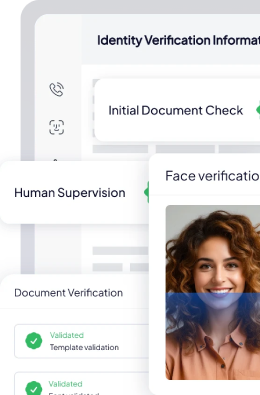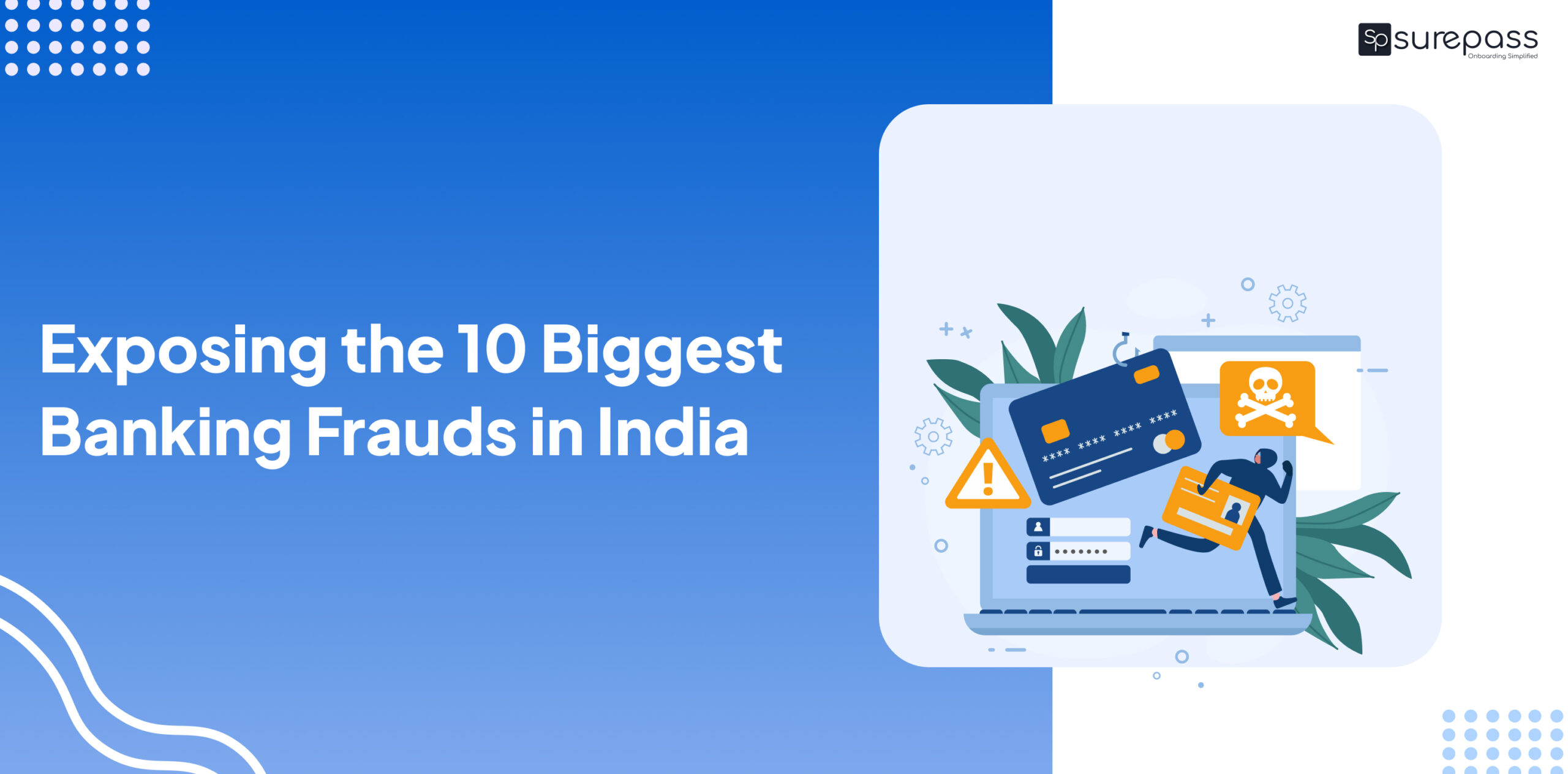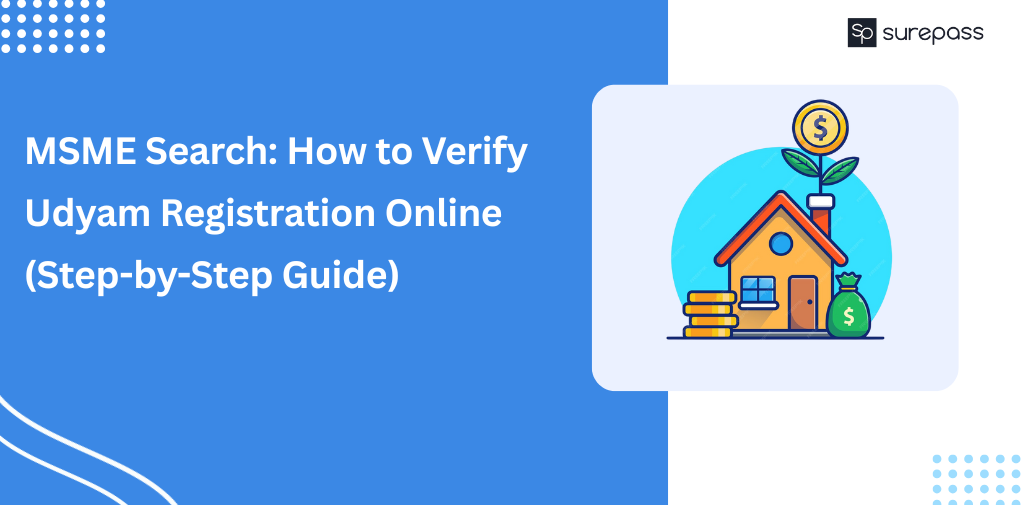Banking Frauds- Meaning
Banking frauds are the use of potentially unlawful techniques to gain money, assets, or other property owned or held by a financial institution, or to defraud depositors by impersonating a bank or other financial organization. Banking frauds are often considered a criminal act.
What are Banking Frauds?
Banking frauds are the big concern that can result in significant financial losses for people, organizations, and financial institutions. It is a severe crime that may take many various forms, from simple cheque fraud to more intricate schemes like identity theft and money laundering.
Bank Scams in India
Bank fraud is a type of financial crime in which a financial institution or its services are used for personal benefit or to carry out other illegal actions. It can include a range of methods, including establishing false accounts, employing false identities, or changing account information. It may also include utilizing stolen credit cards, ATM cards, or other types of unauthorized access to a financial institution’s cash. Bank fraud is a serious crime punishable by fines, imprisonment, and potentially the loss of company licenses.
Automate your KYC Process & reduce Fraud!
We have helped 200+ companies in reducing Fraud by 95%
Top 10 Banking Frauds in India
1. Nirav Modi’s PNB Scam
The Nirav Modi-PNB scandal, which began in early 2018, was a major fraud that rattled the Indian banking industry. Nirav Modi, a well-known jeweler, and his colleagues defrauded Punjab National Bank (PNB) of a whopping Rs. 11,400 crores. This is how they accomplished it.
Modus Operandi:
- Nirav Modi and his accomplices collaborated with PNB officials to acquire false Letters of Undertaking (LoUs).
- These LoUs were used to get loans from other banks without PNB’s knowledge.
The cash gained through this means were then syphoned off and exploited for personal advantage.
Impact:
- PNB experienced significant financial loss and reputational damage.
- The fraud exposed fundamental vulnerabilities in the banking industry’s risk assessment and management procedures.
- It also raised questions regarding the involvement of bank executives in fraudulent operations.
Aftermath:
- Nirav Modi and his uncle, Mehul Choksi, left the country to evade imprisonment.
- Indian officials are seeking to extradite them from the countries where they have sought asylum.
2. Vijay Mallya-Kingfisher Airlines Debacle
Vijay Mallya, the flashy billionaire who founded Kingfisher Airlines, became synonymous with financial wrongdoing in India. His airline’s failure and subsequent loan default of nearly Rs. 9,000 crores rocked the country. Here’s what happened.
Modus Operandi:
- Kingfisher Airlines borrowed large sums from numerous banks but failed to repay them.
- Mallya is accused of diverting money from their original purpose (running the airline) and utilizing it for personal gain and other commercial ventures.
Impact:
- Non-repayment of loans caused a significant financial burden on institutions.
- After Mallya departed India in 2016, new allegations of financial wrongdoing and money misuse arose, adding to the crisis.
Aftermath:
- Vijay Mallya was facing extradition proceedings in the UK, where he sought refuge.
- The case acted as a reminder to enhance lending standards in terms of due diligence and risk assessment.
3. Rotomac Pens Fraud
The Rotomac Pens fraud case centers on Vikram Kothari and his family, who allegedly embezzled Rs. 3,695 crores borrowed from multiple banks for their pen manufacturing firm. Here’s a close look:
Modus Operandi:
- The Kothari family obtained loans for their pen manufacturing firm but allegedly used them for other reasons.
- Instead of using the funds to further their firm, they allegedly syphoned them off for personal gain.
Impact:
- The banks who supplied money to Rotomac Pens experienced enormous financial losses.
- The case demonstrated the degree to which borrowers might abuse borrowed monies.
Aftermath:
- Following the incident, Vikram Kothari was arrested and charged with a crime.
4. Punjab and Maharashtra Cooperative Bank (PMC Bank) Scandal
The PMC Banking Fraud, which broke out in 2019, revealed a labyrinth of financial mismanagement and concealment of non-performing assets. This incident had grave consequences:
Modus Operandi:
- PMC Bank’s management allegedly concealed non-performing loans to the HDIL group.
- Loans were made without sufficient collateral or necessary due diligence.
Impact:
- Thousands of depositors were unable to access their accounts for a lengthy period, creating significant hardship.
- The controversy called into question the oversight and governance of cooperative banks
Aftermath:
- The RBI put significant limits on PMC Bank’s operations, and legal processes are underway.
5. Satyam Computer Services Fraud
The Satyam Computer Services scam, discovered in 2009, was one of India’s most startling business scandals. Founder Ramalinga Raju admits to exaggerating earnings and creating assets. Here is the story:
Modus Operandi:
- Raju and his accomplices altered financial documents to display exaggerated earnings and fictitious assets.
- The fraudulent operations were intended to increase the company’s stock price and recruit investors.
Impact:
- When the truth was out, shareholders and employees experienced significant losses.
- It highlighted issues about corporate governance and auditors’ responsibilities in spotting such fraud.
Aftermath:
- Ramalinga Raju and others implicated in the scam were prosecuted, and the firm was subsequently bought by Tech Mahindra.
6. Bank of Baroda’s Forex Scam
The Bank of Baroda Forex fraud involved unauthorized payments of Rs.6,000 crores from the bank’s Ashok vihar branch in Delhi to foreign accounts. This affair emphasized the need for stronger internal controls and regulatory supervision.
Modus Operandi:
- The Bank of Baroda’s Ashok vihar branch reportedly enabled unauthorized FX trades.
- Funds were moved to Hong Kong and Dubai accounts without the appropriate paperwork or trading operations.
Impact & Aftermath:
- The swindle sparked concerns about the banking industry’s potential for money laundering.
- One of India’s largest public sector banks experienced reputational damage as a result.
Following the incident, the bank improved internal procedures and started an inquiry.
7. Saradha Chit Fund Scam
The Saradha Chit Fund Scam was a Ponzi scam conducted by the Saradha Group that primarily targeted the states of West Bengal and Assam. Here’s what happened:
Modus Operandi:
- The Saradha Group promised investors huge returns on chit funds and real estate projects.
- A typical Ponzi scheme was formed when funds generated from new investors were used to pay out returns to previous investors.
Impact:
- The fraud led to several demonstrations and political unrest, resulting in hundreds of investors losing their investment.
- It revealed regulatory shortcomings in the monitoring of chit funds and collective investment schemes
Aftermath:
- The case resulted in several arrests and greater regulation of chit funds and similar investment schemes.
8. Pearls Aggrotech Corporation Limited (PACL) Scam
The PACL fraud featured Pearls Aggrotech Corporation Limited’s (PACL) land-pooling and real estate development project. The business raised around Rs.49,100 crores from investors but failed to deliver the promised land tracts.
Modus Operandi:
- PACL promised investors agricultural land in exchange for their money.
- But instead of purchasing the land as promised, the company operated a massive Ponzi scam.
Impact:
- Millions of investors, especially in rural regions, lost their hard-earned money.
- The case highlighted regulatory inadequacies in the monitoring of collective investment programmers.
Aftermath:
- SEBI deemed PACL’s operations a Ponzi scheme and began refunding investors’ money.
9. Winsome Diamonds and Forever Precious Diamonds Scam
- The Winsome Diamonds and Forever Precious Diamonds scandal featured credit defaults by both firms, resulting in debts of over Rs.7,000 crores.
Modus Operandi:
- Winsome Diamonds and Forever Precious Diamonds borrowed heavily from banks and financial organizations for their diamond trading operations.
- Lenders experienced substantial financial losses because of the firms’ loan defaults.
Impact:
- The failures resulted in significant non-performing assets (NPAs) for banks and other financial institutions.
- The case demonstrated the necessity for more stringent loan evaluation and monitoring processes.
Aftermath:
- The case highlighted the issue of non-performing assets (NPAs) in the banking sector and led to legal action against defaulting corporations.
10. IL&FS Financial Services Debacle
The Infrastructure Leasing & Financial Services (IL&FS) crisis broke out in 2018, exposing a complicated network of financial mismanagement and defaults.
Modus Operandi:
- IL&FS and its subsidiaries borrowed heavily to build infrastructure projects but struggled to repay debt.
- The crisis highlighted poor corporate governance, a lack of transparency, and dangerous lending practices.
Impact:
- The IL&FS crisis caused fear in financial markets, resulting in liquidity issues.
It highlighted the fragility of India’s infrastructure funding industry.
Aftermath:
- To stabilize the situation, the government took over IL&FS and implemented extensive reform efforts.
Banking Frauds in India- How to prevent it?
Preventing future fraud involves a multifaceted approach that includes financial institutions, regulators, and individuals. Here are some important techniques for reducing the danger of such incidents:
- Enhanced Due Diligence: Financial institutions must do extensive due diligence before making loans or providing financial services. This involves ensuring the legitimacy of documents and collateral, as demonstrated in the Rotomac Pens scam.
- Stricter Controls: Banks and organizations must implement and enforce better internal controls to avoid unauthorized transactions and fraudulent operations, as demonstrated by the Bank of Baroda Forex scam.
- Whistleblower Protection: Encouraging and protecting whistleblowers is critical. Whistleblowers played an important part in uncovering the Satyam scandal.
- Regulatory Vigilance: Regulators such as the RBI and SEBI should constantly monitor financial institutions and take swift action when violations occur, as illustrated by the PACL fraud.
- Awareness and Educations: Individuals must educate themselves about financial goods and services and use prudence while investing or banking. Public awareness initiatives can play an important role in this respect.
- Collaboration: To properly investigate and punish financial crimes, government agencies, financial institutions, and law enforcement must all work together. The Winsome Diamonds and Forever Precious Diamonds scams demonstrated the value of such collaborations.
- Transparency and Accountability: Corporations and financial institutions must adhere to the greatest levels of transparency, accountability, and ethical governance, as demonstrated by the Saradha Chit Fund scandal.
Surepass prevents Financial Frauds in India
Our comprehensive API interface simplifies and secures the bank account verification procedure. Using seamless bank account validation may help you ensure regulatory compliance, reduce risks, and improve client experiences. Our bank account number verification API allows you to verify account ownership, check account status, obtain IFSC codes, and execute real-time bank validations.
Bank Account Verification API improves operational efficiency, reduces fraud, and optimizes customer onboarding. Trust in our dependable solution to speed up your verification procedures and improve the overall client experience.
Verify bank accounts before sending money with a few clicks. Our Bank Account Verification API allows you to confirm the validity of onboarding users simply by entering their bank account number and IFSC code. It ensures seamless transactions with little compliance. Verify your account with us now to prevent future frauds.
Why choose us to prevent scams?
-
Plug and play.
The Bank Verification API is simple to use, and integration is a breeze. We provide a user-friendly interface.
-
Prevent fraud.
The approach will save any institution that has been or may become a victim of fraudulent bank account holders, as well as your money from being transferred to the wrong bank account.
-
Accurate and reliable.
Our system examines the information from the bank connected with the bank account number and IFSC code. As a result, the outcomes are consistently right and legitimate.





